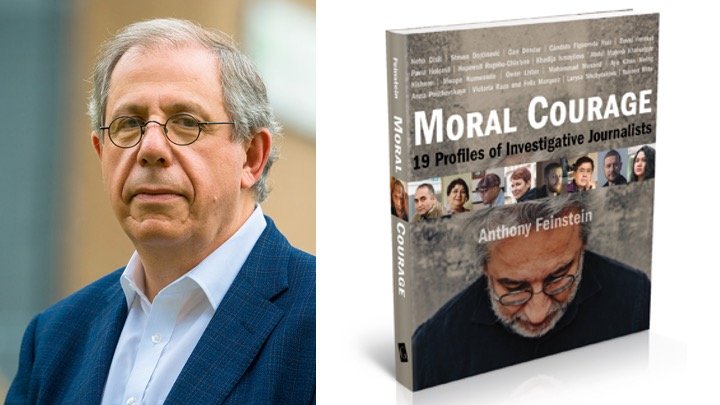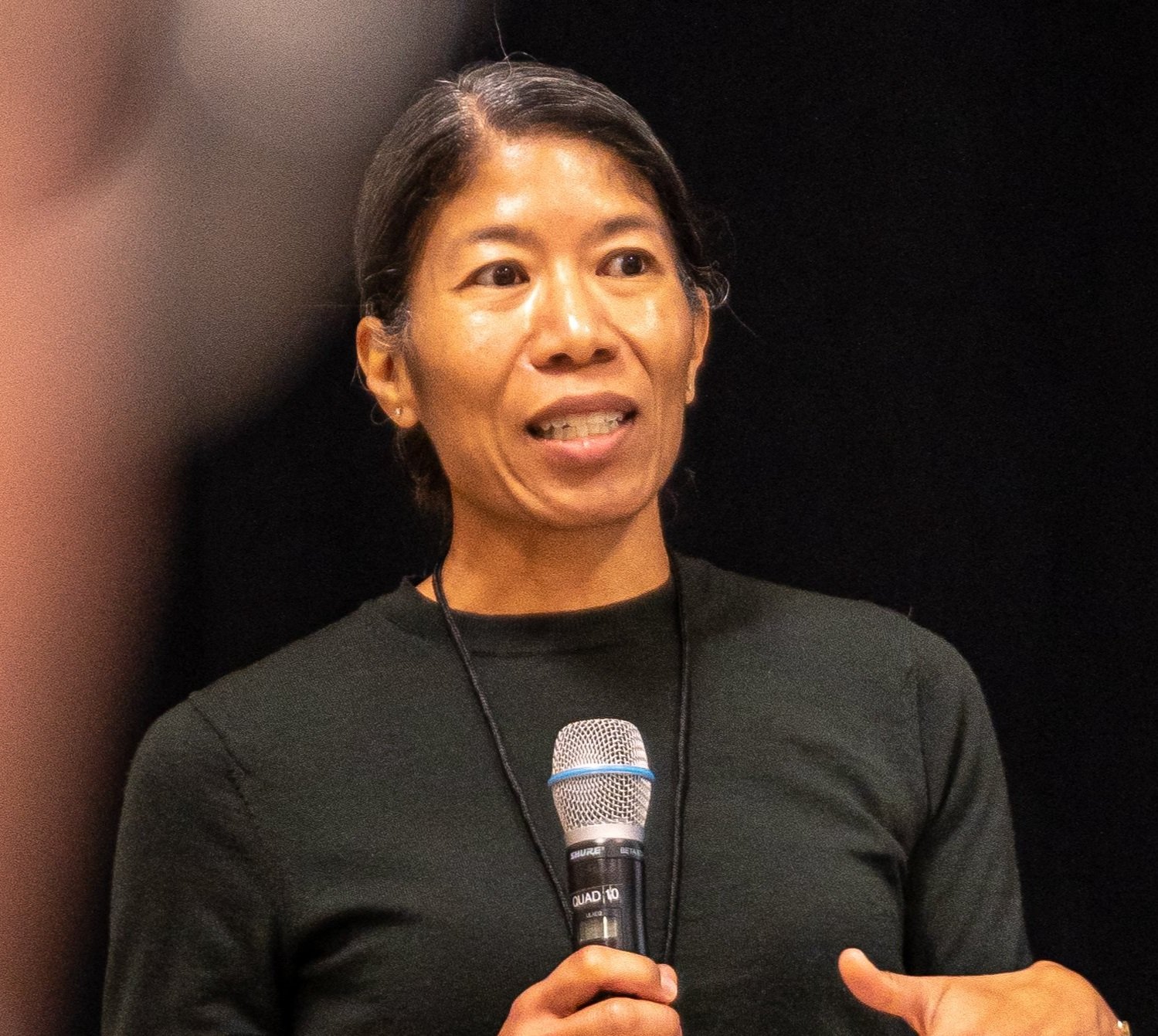‘Wanna chat?’ Canadian journalists building national peer support program
The Canadian Association of Journalists is building a first-of-its-kind nation-wide peer support program to offer safe, confidential colleague-to-colleague conversations. This May the CAJ will launch a pilot project and is currently seeking 20 volunteers to be trained as occasional peer supporters to help news industry professionals across the country. Founding sponsors include the Globe and Mail, CBC, The Canadian Press, Unifor, Canadian Media Guild and the Canadian Mental Health Association -B.C. Learn more…
Workload, job cuts, uncertainty threaten journalists’ mental health
News professionals warn that intense workload, fear of job loss, pressure to ‘get it right’ and distress at not being able to maintain standards are top job hazards affecting their mental health, according to a new report on psychological safety. That’s in addition to routine exposure to death, violence, traumatic imagery. Psychological Safety in Canada’s News Industry was sponsored by the Canadian Association of Journalists and released in February 2025.
Too close? "That ship had sailed": Journalists who stayed in Uvalde, Texas
"When journalists spend hours, days, weeks, and months with people who have experienced severe trauma like a mass shooting, the lines blur. There is more gray than black and white. Emotions are raw and it is natural for journalists to feel emotions about 19 children and two of their teachers being killed in their elementary school. If they don’t have an emotional response to it, that may be more of a concern."
Reporting on mass shootings: journalist lessons from Uvalde, Texas
"For 89% of our study’s participants Uvalde was the first mass shooting they covered and they overwhelmingly reported that they felt woefully unprepared… Many said they felt ‘cheated’ or ‘let down’ by their news managers and the industry for throwing them in the deep end with no relevant trainings.”
Why are Gen-Z journalists burning out?
"Gen-Z has inherited an industry that today is now 24 hour news, driven by lightning fast social media, defined by multi platform journalism, pronounced distrust and hostility toward news media - all with pay that hasn't kept up which has made it harder for younger journalists."
Summit on mental health in journalism a big, global first
“Our ultimate goal is that, within the next few years, every media company in the world incorporates proactive actions to take care of the wellbeing of their most valued asset: its people,”
Five reasons people leave — or stay in —local journalism
Low pay, long hours, better opportunities among top reasons local journalists are quitting the profession, according to a survey of 600 U.S. news professionals.
‘Journalism industry needs to be rewired’
The journalism industry needs to be rewired to experience and understand well-being. It is not just a question of making particular groups of journalists or individuals happier. It is a question of the bottom line, related to retention and recruitment. It is also setting up journalists to do their best work without the potential for self-censorship or burnout.
New methods emerge to teach ‘trauma-awareness’ in j-schools
Virtual reality, actor simulations and video ‘micro learning’ are being used to teach journalism students how to cover trauma, disasters, and human suffering.
NEW BOOK: “Mental Health and Wellbeing for Journalists: A Practical Guide”
I highly recommend this book to any and all newsroom leaders, journalism students and news professionals looking for a one-stop window into current thinking and debates around industry mental health.
How can we improve reporting on trauma and disaster?
We’ve all made mistakes as journalists. Here are a few of mine.
I’ll never forget the day I knocked on the door of a woman who’d recently been attacked by a serial killer. Thinking I’d stumbled on a dramatic scoop, I raced to interview her and put this survivor on the radio news without first thinking about the impact on her, let alone the community.
My ‘scoop’ only compounded her misery.
News industry talks to explore ‘best practices’ for mental health
Join us for “Taking Care In News,” a series of industry discussions on mental health and well-being for news professionals featuring leaders making important changes in their own workplaces and newsrooms.
FREE, via Zoom. Register at journalismforum.ca/events
Brought to you by the Canadian Association of Journalists (CAJ), Carleton University's School of Journalism and the Canadian Journalism Forum on Violence & Trauma.
“Refusal to keep silent keeps moral injury at bay”
Moral Courage: 19 Profiles of Investigative Journalists, released this week, explores the motivation and resilience of journalists who’ve suffered imprisonment, physical attacks and death threats at the hands of criminals and oppressive regimes.
Journalists ‘psychologically injured’ at work on the rise in Canada
It’s vital we uncover just how frequently our people suffer mental injuries from our work — for our own awareness and to ensure our news companies pay attention, examine the risks, and take appropriate action to better protect people who routinely cover trauma and human suffering.
Journalist’s PTSD memoir offers important lessons for news industry
Dean Yates has been to hell and back. Line in the Sand is a raw, deeply personal account of life-threatening PTSD injury suffered as a journalist with Reuters, his recovery, and an exploration of how the news industry deals with mental injury on the job.
Canadian journalism project launching ‘working groups’ to tackle industry mental health
A summit of 50 news industry leaders offer recommendations and practical solutions, here in the Taking Care Roundtable - What We Heard Report
What are news companies doing to protect staff from non-stop death and trauma?
We surveyed newsrooms in the US, UK and Canada to ask how they are protecting journalists from their steady diet of death and trauma
Why newsrooms should champion Mental Health First Aid
Newsroom ‘mental health first aid’ — We aren’t expected to provide treatment; rather, our role is to recognize when there is a problem and help the person in decline or crisis.
Six steps to protect newsroom mental health
Newsrooms seeking ‘practical steps’ to improve mental health got an earful - and some good ideas - this week courtesy of The Journalist’s Resource.
Journalist PTSD ruled a workplace ‘injury’ from covering murders, violence
Journalist Colin Butler’s PTSD has been formally ruled a workplace ‘injury’ from years covering murders, violence and trauma - an he hopes newsrooms take note.
WELL-BEING IN NEWS
IMPROVING MENTAL HEALTH IN JOURNALISM






















